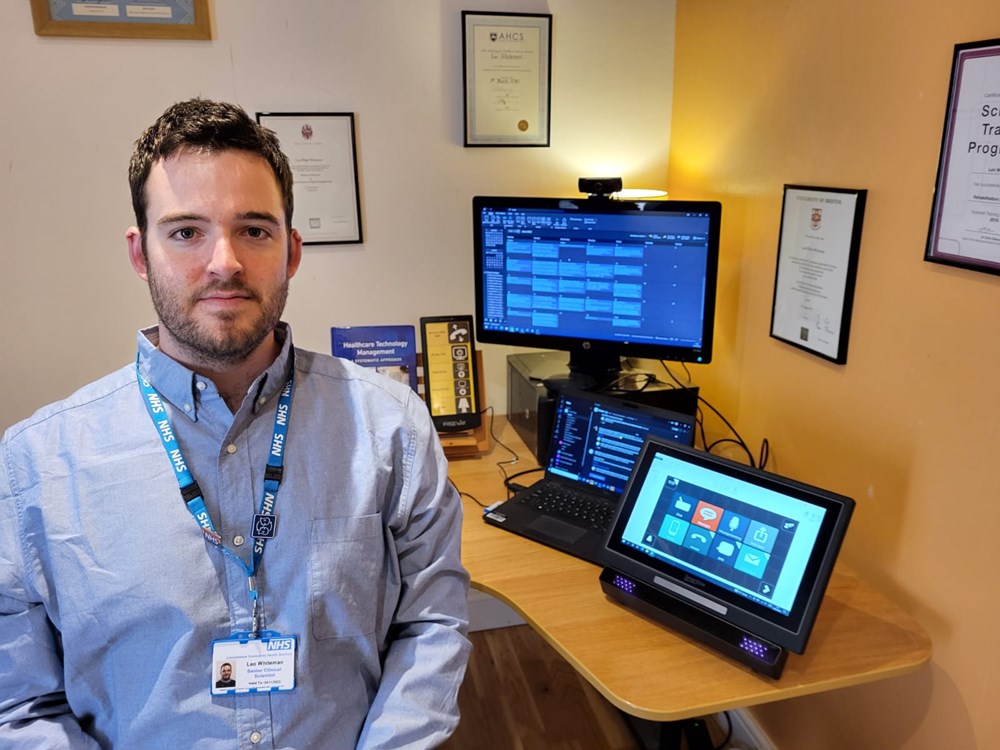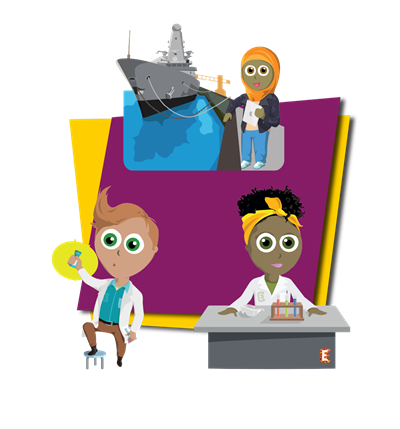Making a difference for disabled people
Leo is a clinical scientist in the NHS, and his designs help make a difference for people living with some of the most complex disabilities.

Name: Leo Whiteman
Job: Clinical Scientist
Company: NHS
Why did you choose to become an engineer?
I always knew I wanted to do something creative. I am a keen musician and also spent time as a stand-up comedian. These are two interests which most would consider to be all-out creative.
However, as I spoke with more and more engineers as I went through my training, I was struck by how much more their work really matters, and whilst highly technical, it still incorporates a great deal of creativity.
Engineering is about designing things, problem solving and getting things done the right way. The discipline underpinning the creativity is what makes it all the more impressive.
What do you love about your job?
I get to make a difference for people living with some of the most complex disabilities in a very direct way. I get to know them through in-depth discussions about their diagnoses, daily routines, care/living arrangements and how they would like technology to improve their life in any way.
I then get to design the system to meet all of their needs, and once it is installed it almost always makes such a big difference to their overall quality of life.
How did you get started as an engineer? (i.e. apprenticeship, university etc)
I studied mechanical engineering at the University of Bristol, before then joining the National School of Healthcare Science’s Scientist Training Programme. This is a graduate training scheme which covers a number of healthcare science disciplines, of which I was enrolled in the Clinical Engineering pathway. In the latter stages of the programme I specialised in rehabilitation engineering.
How does your work make a difference to peoples’ lives?
Very directly! I am in a very fortunate position in that I design bespoke systems for individuals. I only see people with the most complex disabilities, so there is a real sense of purpose and meaning to every system I provide. It is a very challenging job, but the outcomes are always so rewarding to see.
What was the last exciting project you worked on?
I went to go and see a man who had a stroke which had left him with no movement (locked in syndrome). He also had a tracheotomy, and was completely unable to speak. However, I was able to use a slight flicker of movement which he had in one of his fingers to enable him to operate a tablet PC through an access method known as switch access.
He used software on the device to compose a message to his wife, which the device read out loud when she arrived on the ward. He has since gone on to become a fantastic user of his communication device, and when I came back to see him later he had filled the device up with a vast array of quickfire swear words, which he used to communicate with people in a way that he found highly amusing.
But he and his family said that the swearing, jokes and little digs he was dishing out were all entirely in keeping with his personality before he had the stroke. Our voices and the words we say make up a huge part of our identity. Something which can so easily be lost when misfortune hits us and a person is made to stop feeling like a person, and is instead made to feel like a patient.
What advice would you give a young person who was considering engineering as a future career?
If you are not 100% sure which field of engineering you would like to work in, hold off on specialising if you can – pursue one of the bigger general disciplines such as mechanical or civil engineering, rather than something more specialist like biomedical engineering or sports science.
However, if you do know what you want to do, have a look at apprenticeship degree routes. This can be a handy way of studying / entering the profession whilst earning, and often with the tuition fees being covered.
What skills and personal qualities are important for being an engineer?
There is being an engineer, and then there is being a great engineer! Obviously you have the fundamentals of mathematics and physics – those are important to study.
However, as an engineer you will be working in teams, often leading them as a high achiever with specialist / expert knowledge. You do not need to be an extrovert to be a leader, there are a multitude of leaderships styles. You might be a bold and brash director type, who looks to shake things up and get stuck in with everything. You might be a theorist who commands the respect of your team with your quiet, calm approach.
Start thinking about yourself as a leader now. Positive realisation is a powerful tool. Think about who you are as a person and how you interact with others. What are your strengths, what are your weaknesses? What are you like on a good day? How does your behaviour change on a bad day? What helps you to recover when you are stressed? These are all things that are worth thinking about to help you develop as a leader.
